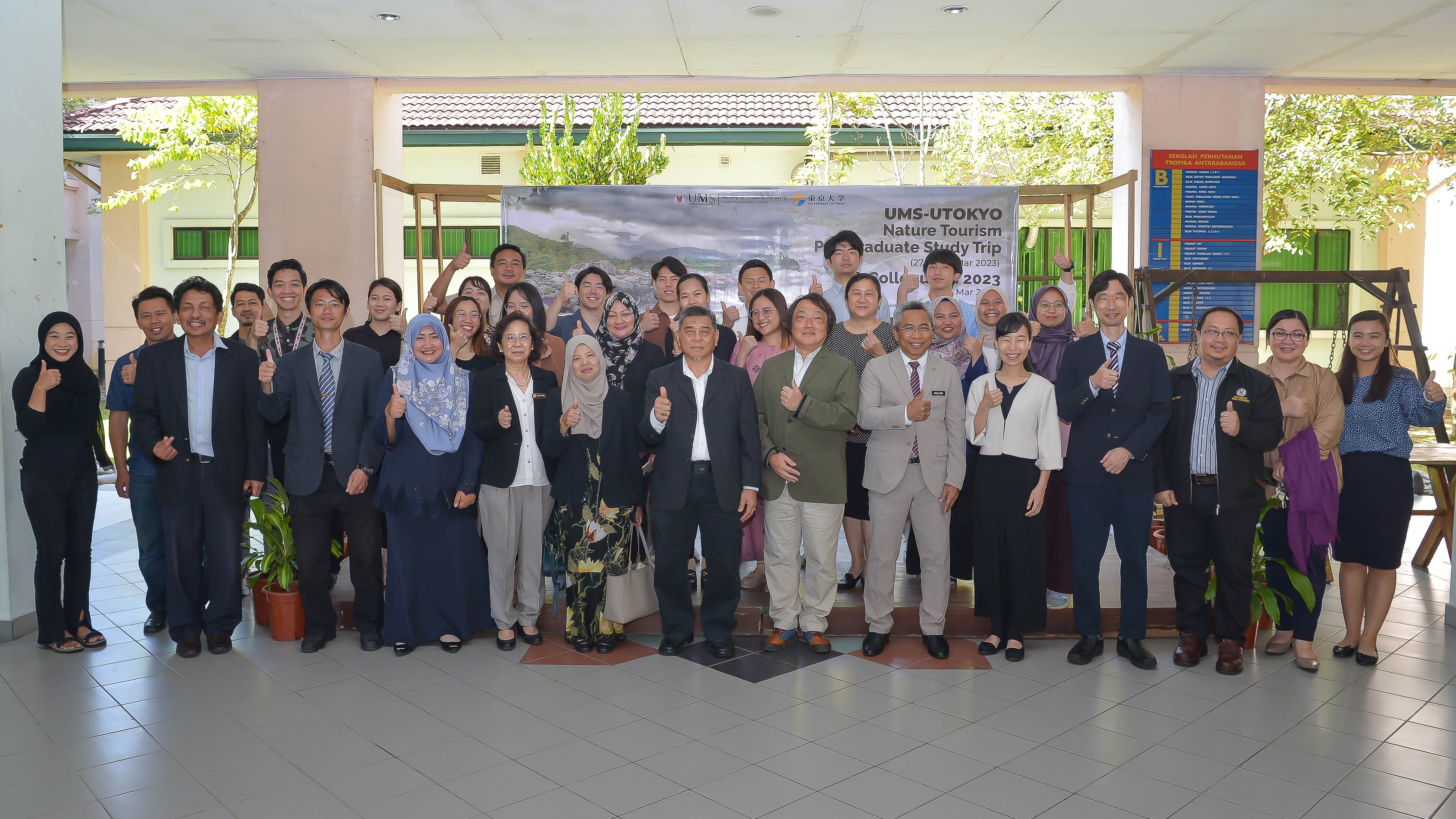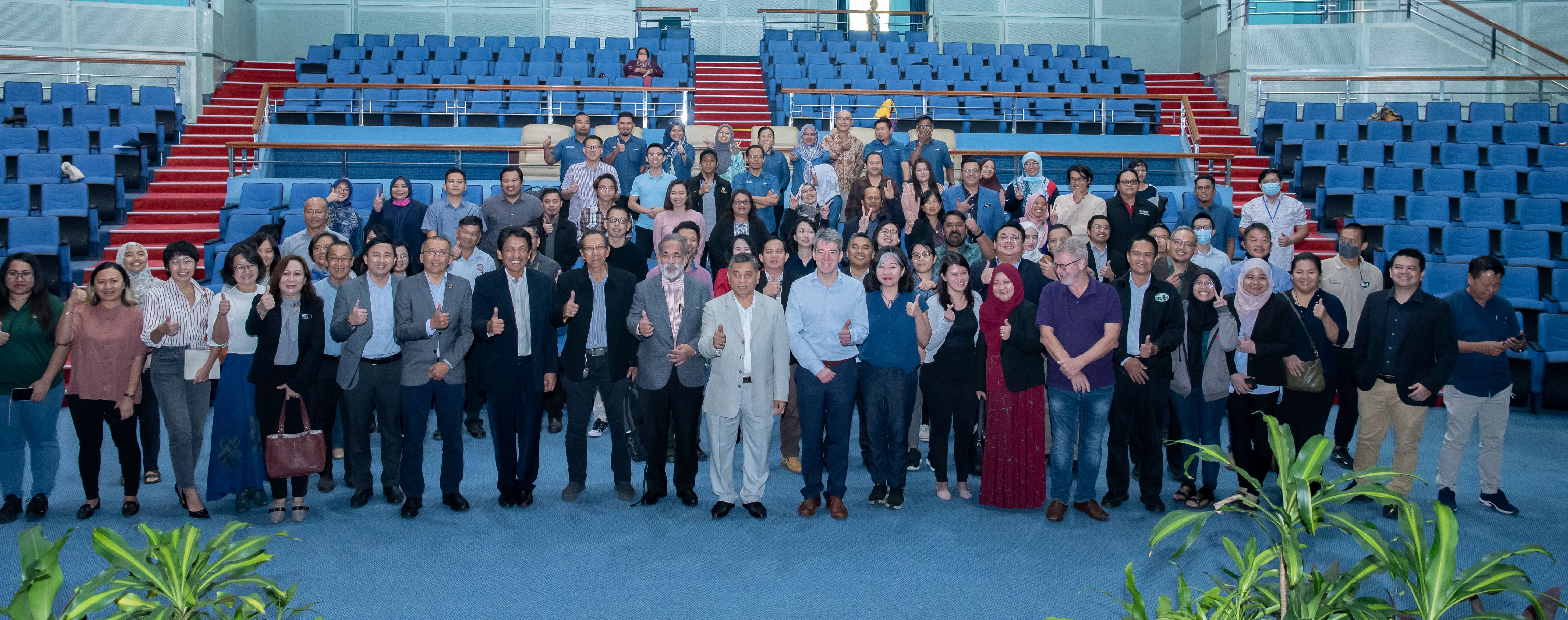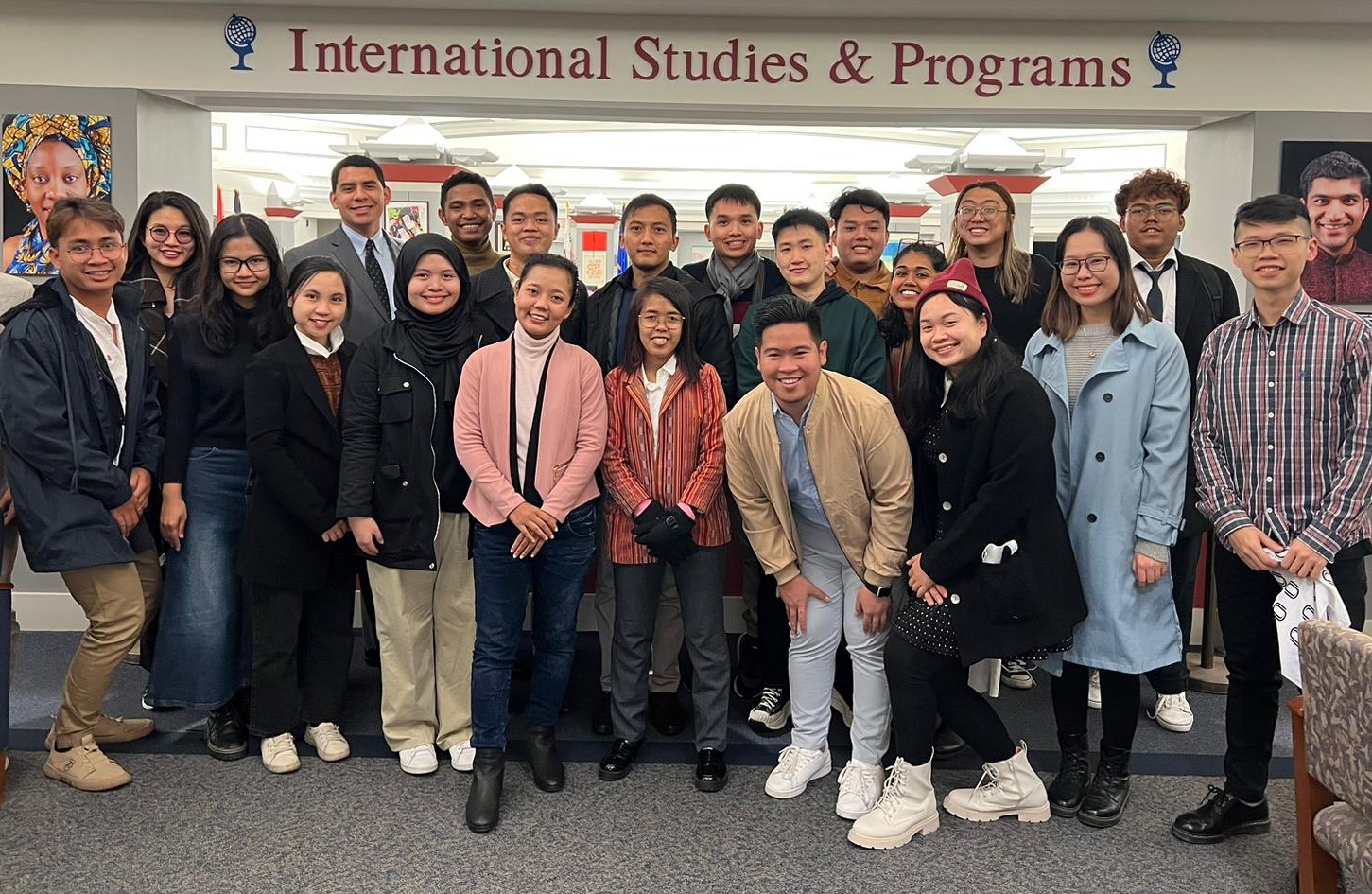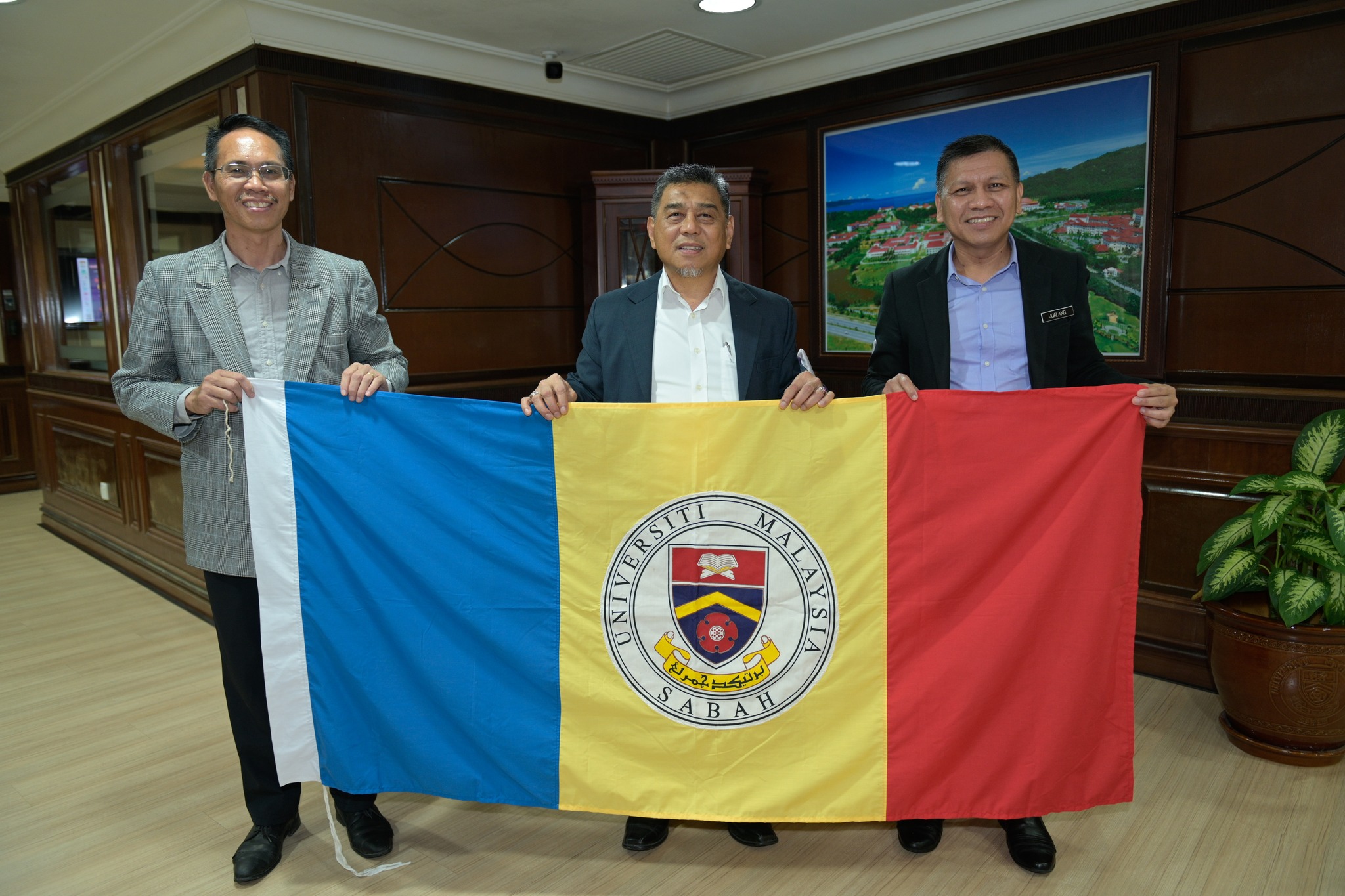- Hits: 3571
UMS, University of Tokyo Jointly Organized Nature Tourism Postgraduate Study Trip and Colloqium
 UMS-UTOKYO Nature Tourism Postgraduate Colloquium 2023 was jointly organized by the Faculty of Tropical Forestry, Universiti Malaysia Sabah and the Graduate School of Agricultural and Life Sciences, the University of Tokyo (UTokyo), Japan recently.
UMS-UTOKYO Nature Tourism Postgraduate Colloquium 2023 was jointly organized by the Faculty of Tropical Forestry, Universiti Malaysia Sabah and the Graduate School of Agricultural and Life Sciences, the University of Tokyo (UTokyo), Japan recently.
It was officiated by the UMS Vice Chancellor, Professor Datuk Dr. Kasim Hj. Mansor.
In his officiating speech, Kasim mentioned that the implementation of the colloquium was in line with UMS vision and mission to achieve academic excellence and international recognition through its attention to teaching and learning, research and publications, and social services.
“This postgraduate colloquium is organized as part of the ongoing collaborations under MoU, which was just extended for another five years, aims to provide a forum for meeting and the proliferation of ideas among the postgraduate students of UMS and UTokyo.
“It also aims to promote the culture of knowledge sharing in the field of forestry, and specifically on nature tourism,” he said.
He added that the colloquium will further strengthen both university working relationship and serve as a forum for learning from each other on various aspects of forestry.
“Nature tourism is a timely topic because tourism is one of the important industries in Sabah,” said Kasim.
Meanwhile, according to the Dean of the Faculty of Tropical Forestry (FPT), Assoc. Prof. Dr. Normah Awang Besar @ Raffie, FPT UMS has a long-standing relationship with the Graduate School of Agricultural and Life Sciences, UTokyo.
“With the signing of MoU in June 2017, UMS forestry was invited as one of the core universities in Asia to participate in the Asian University Forest Research Network under the Core-to-core Program of the Japan Society for Promotion of Science,” she said.
During the colloquium, five distinguished invited speakers delivered their talk pertaining to nature tourism management and development in Sabah.
They are Assoc. Prof. Dr. Kae Miyazawa from Graduate School of Agricultural and Life Sciences (UTokyo), Dr. Maklarin Lakim from Sabah Park, Prof. Dr. Jennifer Chan Kim Lian from the Faculty of Business, Economics and Accountancy UMS, Assoc. Prof. Dr. Fiffy Hanisdah Saikim from Institute of Tropical Biology and Conservation UMS, and Dr. Wilson Wong Vun Chiong from FPT UMS.





 The Faculty of Tropical Forestry, Universiti Malaysia Sabah (UMS) co-hosted the European Union Deforestation Regulation (EUDR) Seminar recently at Recital Hall, UMS.
The Faculty of Tropical Forestry, Universiti Malaysia Sabah (UMS) co-hosted the European Union Deforestation Regulation (EUDR) Seminar recently at Recital Hall, UMS. University Malaysia Sabah (UMS) graduate has been chosen as one of the five from Malaysia to the Young Southeast Asian Leaders Initiative (YSEALI) Academic Fellowship program in the United States (US).
University Malaysia Sabah (UMS) graduate has been chosen as one of the five from Malaysia to the Young Southeast Asian Leaders Initiative (YSEALI) Academic Fellowship program in the United States (US). Atmospheric scientist Prof. Dr. Justin Sentian, from the Environmental Science Programme, Faculty of Science and Natural Resources, Universiti Malaysia Sabah (UMS) will be the first Malaysian scientist to carry out climate and atmospheric science research in Antarctica during the long winter season.
Atmospheric scientist Prof. Dr. Justin Sentian, from the Environmental Science Programme, Faculty of Science and Natural Resources, Universiti Malaysia Sabah (UMS) will be the first Malaysian scientist to carry out climate and atmospheric science research in Antarctica during the long winter season.